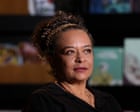
This week has brought about a series of remarkable developments highlighting diverse global socio-political landscapes. From milestones in literary recognition to shifts in immigration policy, each event contributes to the evolving tapestry of current affairs. These stories, spanning continents, cultures, and communities, remind us of the interconnected nature of today’s world.
In Brazil, the literary world celebrated a historic moment with the election of Ana Maria Gonçalves to the Brazilian Academy of Letters. Gonçalves, the acclaimed author of “Um Defeito de Cor,” is the first Black woman to join the prestigious 128-year-old institution, which has traditionally been dominated by white males. Her election is seen as a triumph for diversity and representation within the literary community, drawing praise from notable figures, including President Luiz Inácio Lula da Silva. It underscores a broader movement towards inclusivity and the recognition of diverse voices in Brazil’s cultural landscape.
Meanwhile, a family in Sydney is fervently seeking justice and resolution as they call upon Australia’s Home Affairs Minister, Tony Burke, to address the visa predicament of Maha Almassri, a Palestinian grandmother. Almassri, who fled Gaza and initially received a visitor visa upon her arrival in Australia, now finds herself detained at the Villawood detention centre. Her family argues for the reinstatement of her ability to stay in Australia, emphasizing her need for sanctuary away from conflict. This case is a poignant reminder of the complexities surrounding immigration and asylum policies in contemporary Australia.
In Bangladesh, an interesting cultural shift is underway as the country’s caretaker government officially ended the practice of addressing female officials as “sir.” This protocol was a lingering legacy of the past regime under Sheikh Hasina, and its overturn is a symbol of change and progress. Led by Nobel laureate Muhammad Yunus, the interim administration aims to usher in a new era of recognition and respect for women’s roles in governance and public service.
Over in the UK, tensions surrounding freedom of expression and assembly have risen, leading to arrests in London. Recently, a number of individuals gathering in Parliament Square to display signs supporting Palestine Action were detained for a second consecutive week. This situation highlights ongoing debates regarding the balance between lawful protest and law enforcement in modern democratic societies.
In the United States, a significant legal intervention by a federal judge has temporarily halted the Trump administration’s immigration practices in California. Concerns about racial profiling had triggered a lawsuit that accused the government of unfairly targeting individuals based on their appearance. The court’s decision to support the temporary stop reflects the continuous scrutiny and legal challenges surrounding immigration policies in the U.S.
Lastly, an outcry against conditions at a Florida detention center, infamously dubbed ‘Alligator Alcatraz,’ has resulted in public denouncements from Miami’s Archbishop Thomas Wenski. His criticism underscores the moral and ethical considerations in dealing with detainees and calls for more humane, legally sound pathways in handling immigration matters.
Each of these narratives, while distinct in their context and impact, enriches our understanding of the social and political dynamics at play globally. They stimulate reflection on how societies can evolve through inclusive practices, legal challenges, and advocacy for fundamental human rights. As the world navigates these complex issues, the importance of mindful dialogue and informed action remains paramount.
Source: {link}
